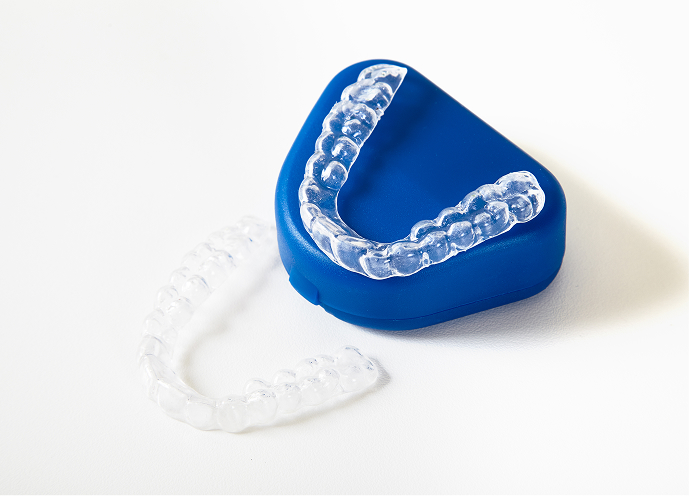Signs You Might Require a Root Canal: Knowing the Symptoms
May 1, 2025Tooth pain that just won't quit? It could be more serious than you think. If you're wondering whether you need root canal therapy in Hackensack, NJ, you're not alone. Understanding the signs can really help you act fast and save your natural tooth. Nobody wishes to hear the words "root canal." But sometimes, it's the only way to stop the nagging pain.

Common Symptoms That May Signify You Need a Root Canal
Your teeth aren’t just there to chew food. They’re full of nerves, roots, and soft tissue. When bacteria reach the pulp (the inner part of the tooth), they may cause an infection that doesn’t go away on its own. That’s when root canal therapy becomes necessary.
Here are the signs that should raise a red flag:
Persistent Tooth Pain
You’re sitting comfortably at your desk or watching TV, and that dull ache in your tooth just won’t quit. It comes and goes, or maybe it lingers for hours. Either way, it’s hard to ignore.
Here’s what to look for:
- Pain that doesn’t go away after taking over-the-counter pain relief
- Throbbing that worsens when lying down
- A sharp jab of pain when biting
If you’re looking for a root canal near you, that lingering tooth pain might be your cue. Even mild discomfort can point to a deeper issue. Don’t wait—getting it checked early can make all the difference.
Sensitivity to Hot and Cold That Lingers
Ice cream. Coffee. Tea. You might love them, but your teeth don’t. If sipping something cold or hot sends a jolt through your mouth, and the sensation sticks around for more than a few seconds, it’s not just sensitive teeth. It could be a sign of nerve damage inside your tooth.
Unlike regular sensitivity that fades fast, this kind hangs around like an unwanted guest. Sometimes it lingers for minutes. That’s not normal.
Swollen or Tender Gums
Your gums should feel firm and sit snug against your teeth. If they feel puffy or sore, pay attention. Gum swelling near one tooth could mean there’s an infection hiding below the surface.
Keep an eye out for:
- A small pimple-like bump on the gums
- Redness or swelling in one area
- Soreness when brushing or flossing
Infections often sneak up quietly. A dentist near you can tell if the swelling is due to a tooth problem or something else.
Discoloration or Darkening of the Tooth
One tooth suddenly looks darker than the rest. No trauma, no reason. This change often means something is wrong inside the tooth.
Teeth change color when the pulp becomes infected or dies. Instead of staying white or off-white, the tooth may look gray or brown. If you notice this kind of change, schedule a visit. It’s better to be safe than sorry.
Pain When Eating or Touching the Tooth
Biting down shouldn’t make you wince. If it does, your tooth might be in trouble.
Some patients say the tooth feels “high” or raised when they bite. Others feel pressure or pain every time they chew. That’s your tooth telling you it’s irritated—and possibly infected.
You might not see a crack or cavity, but deep inside, the pulp could be inflamed. If left untreated, the pain will likely get worse.
A Chipped or Cracked Tooth
Did you bite down on something hard, or maybe you bumped your tooth without realizing it? Cracks and chips open the door for bacteria. Once they get in, they can reach the pulp fast.
Sometimes, even small cracks—ones you can’t see—cause big trouble. If your tooth starts hurting after an injury or feels more sensitive than usual, don’t ignore it.
Visit a dentist in Hackensack to see what’s going on beneath the surface.
A Loose Tooth
Adult teeth aren’t supposed to wiggle. If your tooth feels loose or unstable, that’s a serious sign.
When a tooth turns infected, it can weaken the bone around it. This loss of support leads to looseness, even if the tooth looks fine on the outside.
Common reasons teeth feel loose:
- Advanced infection or decay
- Pressure from swelling around the root
- Bone loss around the tooth
Waiting can cause permanent damage. Call your local dentist to get it checked right away.
Bad Breath or a Metallic Taste
We all get morning breath, but if yours doesn’t go away after brushing, something else might be going on.
Infected teeth often smell bad. Bacteria release gases, and that odor finds its way into your breath. Some patients also notice a weird, metallic taste that sticks around.
You might notice:
- Foul breath despite regular brushing
- A sour or bitter taste
- Bad taste after flossing or chewing
These signs usually mean there’s an infection somewhere in your mouth. If a single tooth is the source, toothaches might soon follow.
Final Thoughts
Root canal symptoms don’t fix themselves, and waiting can make things worse. If you’re noticing any warning signs, it’s time to act. Hackensack Dentist is here to help you get relief, save your smile, and feel like yourself again. Book your visit today and let us take care of the pain before it takes over your life.
Let your smile be something you’re proud of, not something you worry about.


